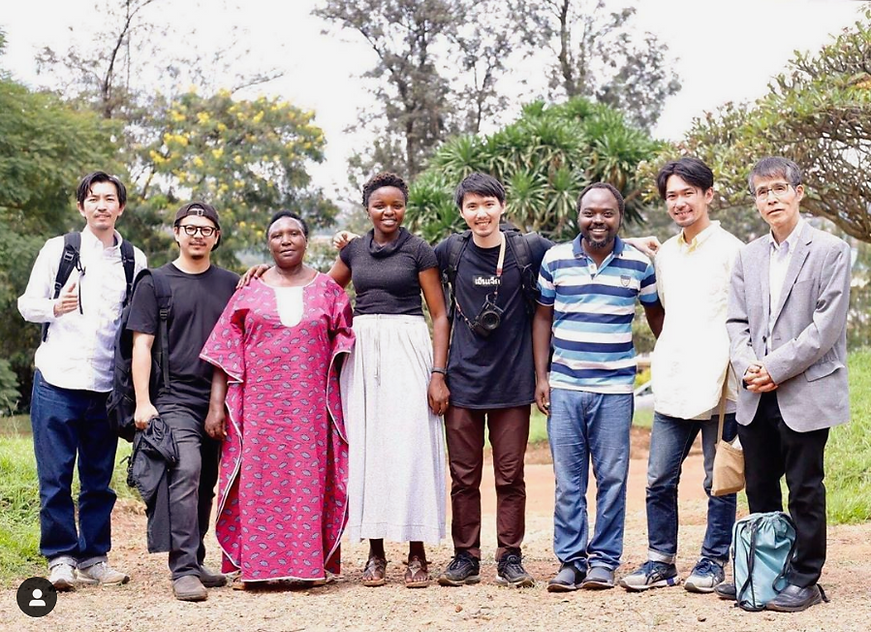

May, 2019 Visiting our supplier, BUF Coffee in Rwanda
with Members of our Team: Onibus Coffee (www.onibus.coffee.com)、
And Coffee Roasters (www.andcoffeeroasters.com) & Green Pastures.

About Green Pastures
■会社概要
会社名 :グリーンパスチャーズ株式会社
住所 :〒161-0031 東京都新宿区西落合3-18-12
電話番号 : 090-6527-6608
FAX番号 : 03-3954-5223
代表取締役 : 草場江太 / Kota Kusaba
連絡先 : info@greenpastures.co.jp
SNS :
アドバイザー顧問弁護士 : 佐々木満男(アブラハムささき法律事務所)https://ixabraham.com/office.html
税理士 : 松岡珠美(松岡税理士事務所)
■ Principle:
Green Pastures Co., Ltd. was established in 2009 to support a peaceful and fair society in Africa and the Middle East area.
Our principle comes from the book of Isaiah 43:4 of the Old Testament
“You are precious in my eyes.”
In other words, every person is important in God’s eyes,
We wish that all of our activities are useful in helping to build peace in Rwanda and to the lives of the coffee workers and their families.
Your kind understanding and support is much appreciated.
Green Pastures Co., Ltd.
Kota Kusaba
■ Green Pastures’ Collaboration with various People and Organizations
We first started to import Rwandan Coffee beans in order to support
“NPO Motherhouse”https://motherhouse-jp.org/
for their profit making activity by coffee sales.
At the initial period, we arranged the Rwandan Coffee Seminar in Tokyo together with the Ambassador of Rwanda in Japan, Manager of JETRO and managers of various coffee companies when the sales manager of our supplier “Dallas Investments Ltd.” came to Japan from Rwanda in 2013.
Since then, we have been continuing and expanding our Rwandan Coffee business by the strong spirit and encouragement of both NPO Motherhouse and Rwandan Coffee suppliers, together with the kind support from various specialty coffee roasters and specialists in Japan.
The kinds of coffee beans we import from Rwanda have increased thanks to our customers’ appreciation and our sales have now expanded throughout Japan. We would like to express our heartfelt appreciation.
■ “Birth of VIP Specialty Coffee” -
Characteristics of Karisimbi Mountain Coffee (VIP Coffee)
We have been importing green beans of Karisimbi Mountain Coffee produced by our partner “Dallas Investments” since 2017. We have now started the sales of its roasted beans.
The characteristics of its tastes are a clean cup influenced by volcanic soils.
Temperature drops at night allowing for fermentation to work slowly to produce beans with a well balanced, elegantly sweet and acidic taste (pineapple, plum, red cherry).
The Coffee trees are Arabica Bourbon and the cherries are fully washed and dried under the African sun.
■ Suitable Environment and Careful Coffee Production
Karisimbi Mountain Coffee is processed at the Gicumbi washing station
owned by Immy Kamarade.
She has developed the area by planting coffee trees and increasing production. Coffee trees are planted mainly with organic fertilizers and she wants to do so entirely in the near future.
After severe screening, the beans are supplied to the importer and then to buyers.
The process line is transparent from production until delivery to the consumers and sold as specialty coffee.
At Karisimbi coffee farms and washing stations, approximately ninety per cent of the workers are women. Rwandan women are hard working both at the farms as well as at home. Women are active in politics and business; their leadership has contributed effectively to improving their living standards.
About the Republic of Rwanda and Rwandan Coffee
■ “Thousands Hill Country” – Geography of Rwanda –
The Republic of Rwanda is located in central east Africa, a small area, about 1.5 times the area of the Shikoku islands of Japan, where approximately 15 million people live.
The neighboring countries are the Republics of Congo, Uganda, Tanzania and Burundi. It is a commonwealth country and the capital is Kigali.
Rwanda is the most densely populated country in Africa and generally peaceful. It is called “the Land of Thousands Hills" with a savanna to the east, beautiful lakes and soils rich with volcanic ash.
■ A short history of Rwanda and "the Miracle of Africa"
The Kingdom of Rwanda came under German and Belgium rule and when it gained independence in 1962 it was regarded as one of the poorest countries in Africa. However, by the result of good economic restructuring plan since 1966, Rwanda began to develop as one of the best model countries in Africa.
However after that period, the gap between poverty and wealth increased through progress, urbanization, and by the sudden fall in coffee prices. It was in an economic slump and social confusion when the cruel genocide broke out in 1994 taking many lives.
Lately Rwanda has accomplished rapid economic growth through agricultural reform, infrastructure maintenance, enforcement of law and order, promotion of IT industry, and foreign investment. It is now called the miracle of Africa.
■ History of Coffee Beans Production as the National Policy
Coffee was brought to Rwanda in the early 1900s by German missionaries. It was around 1917 that the export of coffee was recorded, and its cultivation was made mandatory. From that time on, coffee played an important role in the development of society and economy as a source of foreign currency.
After the genocide of 1994 and coffee crisis in the 1990s, an American International Development Agency (USAID) helped fund the PEARL (The Partner for Enhancing Agriculture in Rwanda through Linkages) project which revolutionized Rwanda’s coffee goal from quantity to quality, opening the door to Specialty coffee.
Rwashoscco(Rwanda Small Holder Specialty Company):
a small scale farmhouse cooperative is established.
Buf Coffee is launched:
The Cup of Excellence (COE) is held for the first time in Africa in 2008.
The Quality of Rwandan specialty coffee continues to make strides.
■ Taste of Rwandan Coffee
Rwandan specialty coffee is a traditional Arabica Bourbon. The taste is cultivated in rich volcanic soil at high altitude, near the equator and fermented at night in low temperature.
The characteristics of its tastes are a clean cup with fruity flavors and floral accents.

